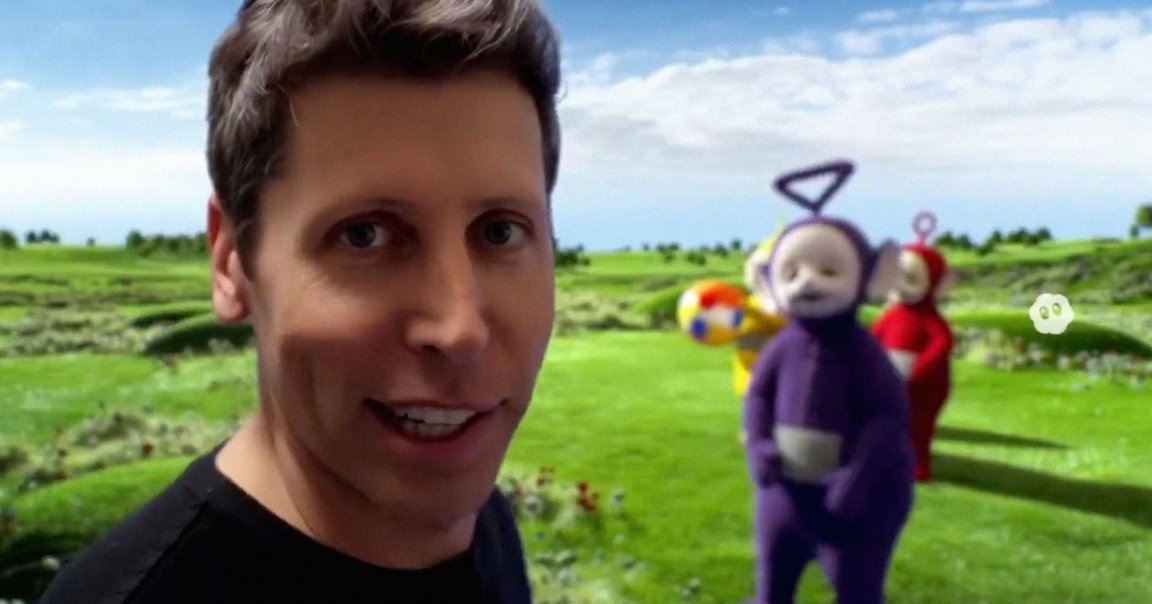
It didn’t take long for OpenAI’s text-to-video-and-audio AI generator app, Sora 2, to melt down into a messy pile of potentially copyright-infringing AI slop.
Within just days, the TikTok-style app’s mind-numbing feed of AI-generated content was filled with videos of Nickelodeon’s SpongeBob SquarePants cooking up blue crystals in a meth lab, entire episodes of South Park, and depictions of physicist Stephen Hawking being brutalized in horrible ways.
The app’s prominent use of recognizable intellectual property and the likenesses of real people, combined with its sheer amount of hype, has allowed it to shoot up to the top of Apple’s App Store, with Meta’s competing Vibes app, which was released less than a week before Sora 2, quickly turning into a long-forgotten footnote in AI slop history.
All that success creates a problem for OpenAI: how to stop Sora 2 from burning through cash as users generate countless resource-intensive AI videos.
In an update posted to his personal blog, OpenAI CEO Sam Altman admitted that the company had a lot of work to do, especially when it comes to turning its AI slop generator into a moneymaker.
“We are going to have to somehow make money for video generation,” he said. “People are generating much more than we expected per user, and a lot of videos are being generated for very small audiences.”
It’s a pressing issue for the firm because of the sheer amount of computing power needed to generate AI videos. Last month, researchers from the open-source AI platform Hugging Face found that the energy demands of text-to-video generators quadruple when the length of videos doubles, suggesting the power required increases quadratically, not linearly.
Multiply those demands by the number of videos being generated on Sora 2, and OpenAI is likely looking at massive compute demands. In other words, OpenAI’s foray into slop-based social media could quickly turn into a very costly endeavor.
And turning Sora 2 into a source of revenue won’t be easy. It’s not clear that users will actually pay to use the service — and adding to OpenAI’s woes, rightsholders could soon be asking questions about its eyebrow-raising ask-for-forgiveness-later approach to intellectual property and content moderation.
The company has since slammed on the brakes, implementing guardrails on Sora 2 that were mysteriously absent on day one, as copyright lawyer Aaron Moss pointed out in a recent article. Users are running into the company’s content blocks at full force, resulting in widespread frustration.
As Altman’s blog post indicates, the company doesn’t have a fleshed-out plan on how to generate revenue. Some of the proceeds, according to the CEO, will be shared “with rightsholders who want their characters generated by users.” But where those proceeds will come from — presumably, either from advertising or users — remains unclear.
“The idea — perhaps similar to YouTube’s ad-monetization program for videos that include copyrighted material — would give studios a financial incentive to opt in,” Moss wrote in his piece.
“When thousands of GPU-intensive ten-second ‘South Park’ clips also risk copyright lawsuits, the math gets ugly fast,” he added. But if “studios become partners rather than adversaries, OpenAI can potentially offset costs while buying legal cover.”
Wooing rightsholders to OpenAI’s side, especially now that the company has allowed for potentially copyright-infringing material to proliferate widely, is far easier said than done. Indeed, major rightsholders have already filed lawsuits against generative AI companies. Case in point, just last month, Warner Bros. Discovery sued AI text-to-image generator company Midjourney for infringement, joining Disney and NBC Universal.
“There’s a world of difference between studios collecting YouTube ad revenue on video clips they produce and control, and handing over their characters for anyone to freely manipulate in exchange for a few bucks,” Moss wrote.
Other netizens pointed out that copyright holders may balk at OpenAI’s courting attempts.
“Why on earth would any brand pay for their IP to be surfaced by a user prompt upon their requests?” one argued. “That’s not even close to how any of this works.”
“Why would I, as a multibillion-dollar rightsholder, not just take you to the cleaners?” another user added.
More on Sora 2: OpenAI’s Sora 2 Already Melting Down Into Outrageous Drama